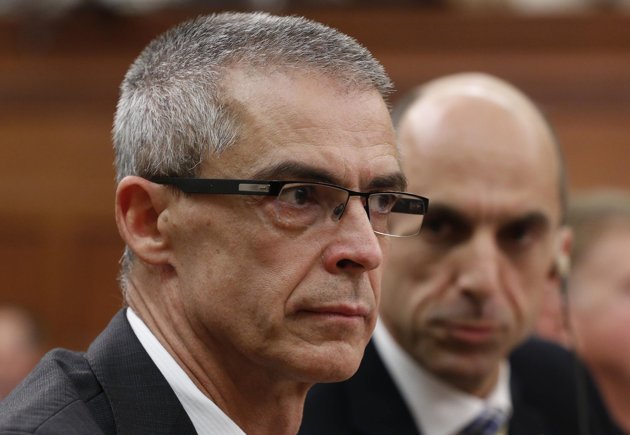Canada pushes for new anti-terror laws, critics say money needed
Reuters/ By Euan Rocha and David Ljunggren/27.10.14
TORONTO/OTTAWA (Reuters) – Canadian police need more resources and not extra powers to deal with the threat posed by extremists after two deadly attacks, say legal and security experts, as the government pledged to deliver tough new anti-terror legislation.
Canada’s Conservative government said it will soon introduce a bill to enhance the Canadian Security Intelligence Service (CSIS) spy agency and is planning other legislation designed to allow police to preempt threats and crack down on hate speech.
Officials complain they are hampered by laws they say impose too many restrictions and prevent them from taking action against people who are clearly a threat.
“The challenges are the thresholds — the thresholds that will allow either preventive arrest, or charges that lead to sentences,” Public Safety Minister Stephen Blaney said on Friday.
Authorities are most concerned about 93 high-risk travelers who they fear could try to leave the country to join militant groups or mount attacks in Canada.
But experts note that law enforcement agencies already have wide ranging powers at their disposal and could use rarely tapped provisions in Canada’s Anti-Terrorism Act.
“The thing the authorities need however more than anything else is far more resources,” said University of Ottawa professor Errol Mendes, a lawyer and constitutional law expert.
Royal Canadian Mounted Police Commissioner Bob Paulson made clear last Thursday that he could use more money, saying the task of watching the suspects was highly labor-intensive.
A senior CSIS official told legislators on Oct. 20 that the agency did not have the funding to simultaneously follow all of the people it regards as its top suspects.
The 2013 Combating Terrorism Act introduced new powers and penalties aimed at least in part at preventing such attacks. It also allows for preventative detention and interrogating suspects before any charges are laid in certain circumstances.
Experts argue the fact that these options have been rarely tapped by authorities is a sign that more regular techniques and procedures are for now sufficient.
“It will be very difficult to come up with additions to those that really wouldn’t offend democratic principles,” said Wesley Wark, an associate professor at the University of Toronto and a leading Canadian expert on intelligence and anti-terrorism matters.
One particularly controversial change in the CSIS bill would grant blanket protection for CSIS informants in security proceedings, shielding their identities from judges and not allowing them to be cross-examined.
Lawyers who have acted for suspects in these cases say this means they would have no way of challenging possibly false testimony.
“I don’t believe that when it comes to enforcement that we should just turn a blank checkbook over to our security services,” said Norman Boxall, an Ottawa lawyer, who predicted the new measures would be challenged in court.
Tom Mulcair, the leader of the official opposition New Democrats, said after Monday’s attack that he saw no need for new powers for CSIS.
“More often than not, all the powers that you need are there, but you actually have to provide all the resources to exercise those powers,” he said.
(Additional reporting by Allison Martell in Toronto; Editing by Jeffrey Hodgson and Eric Walsh)

















